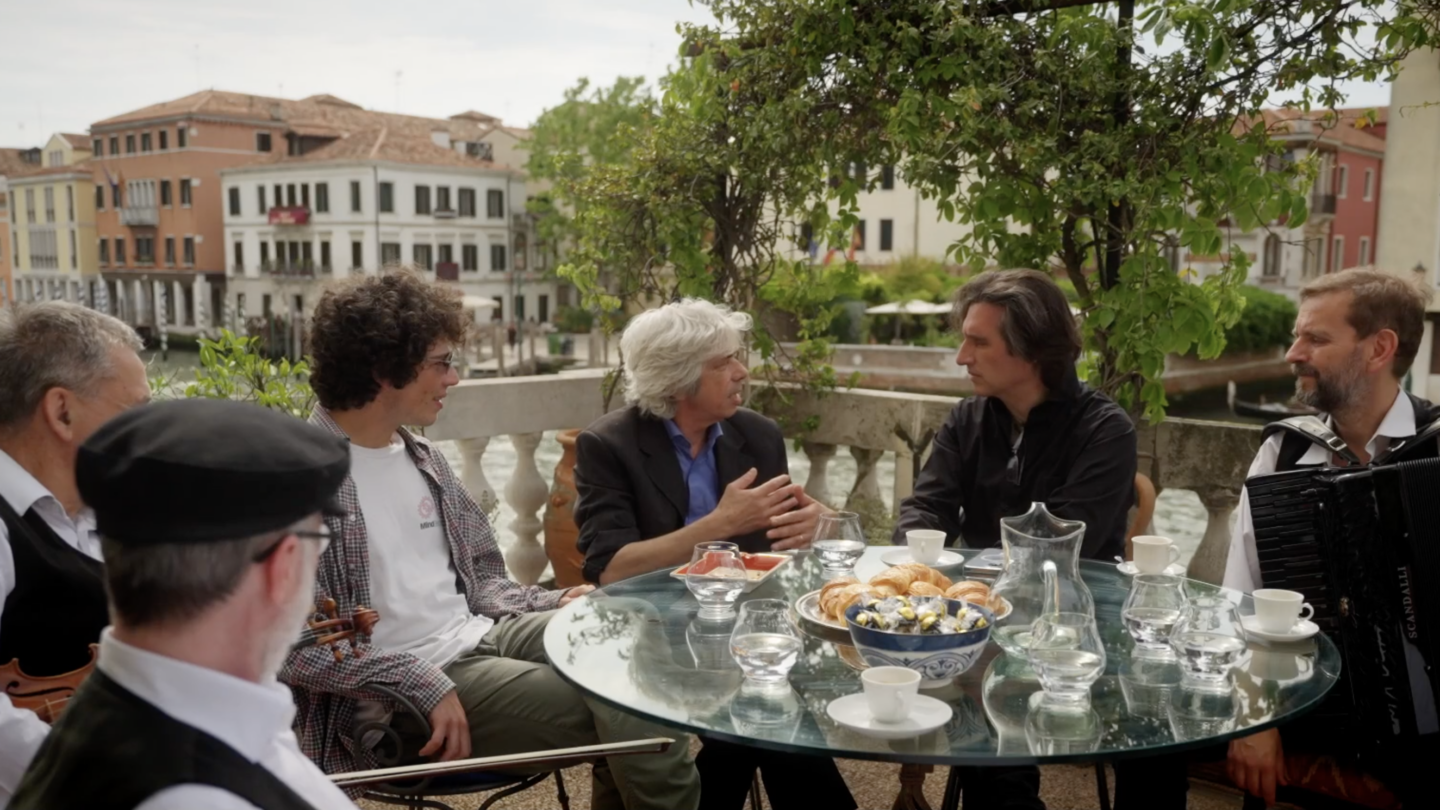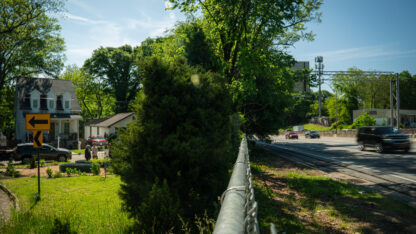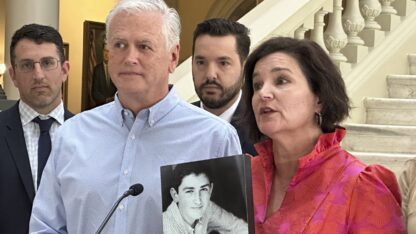New historical documentary by Hershey Felder premieres at the Atlanta Jewish Film Festival

The pianist, actor, writer and producer Hershey Felder is famous for his one-man stage show about musical icons, including George Gershwin, Irving Berlin, Leonard Bernstein, and Tchaikovsky.
He recently created a new historical documentary that will have its world premiere on Monday at the Atlanta Jewish Film Festival, and Felder joined “City Lights” host Lois Reitzes via Zoom to talk more about “Musical Tales of the Venetian Jewish Ghetto.”
Interview highlights:
A film born out of a performer’s lockdown hiatus in Italy:
“It had always been in the cards – once I got too old to hobble around the stage, if I wasn’t able to hobble around the stage anymore, I would turn to film,” said Felder. “What ended up happening was, it happened ten years prior because of the pandemic. I was actually planning the turnover to film ten years hence, but all of a sudden, this pandemic took over the world, and I was faced with just shutting down all the business entirely and waiting till the end of the pandemic or figuring out a way to somehow entertain people and keep the staff working.”
“I was ensconced in Florence, in Italy, and in Venice, where home is. And I thought, ‘Well, you know, anywhere you point a camera in any one of these towns, it’s the most glorious set in the world. Why don’t I just start making movies ten years before I thought I would?’ And it turned immediately into something that the public wanted. I was very lucky. They had nothing to do in general. They were locked at home. There were these Zoom things, but I was very fortunate because we were able to, very early on, create a bubble of Italian artists and the few who were with me from the United States and create shows for a public during a time where there was no other product being produced.”
The darkly fascinating Venetian origins of the word “ghetto:”
“The word ‘ghetto’ has so many meanings in terms of the world now and so many meanings that are negative. I mean, whether one speaks about, in the period of the Holocaust, the ghetto or one refers to the inner city, and refers to that as the ghetto… There are so many connotations to this, but in fact, the origins of the word ‘ghetto’ come from Venice, Italy. The Republic of Venice gave Jews an island, because Jews were taken into Venice in 1516, in the early 1500s, because they were needed here. The Ottoman Empire needed the Jews in order to have doctors, in order to have merchants and moneylenders and printers,” Felder explained.
“So when they took in all the Jews thinking that would be a very good idea and a very good investment, they still wanted to keep them separated from society – you know, the dangers of getting involved with a Jew… so they gave the Jews an island here, which was called the ghetto nuovo, the ‘new ghetto.’ Now, before it was called ‘ghetto,’ it was a place that was for the discardings of a foundry; foundry metals were discarded on this island, and it comes from the word ‘ghettare,’ which means ‘to throw away’ in Italian. So it was almost a place where they would throw away, send it to the ghetto, the place where you throw away the garbage metals from the foundry.”
Why “Musical Tales” prominently features klezmer, not a traditionally Venetian music:
“I could have featured Venetian gondola music, but that was entirely Venetian music, music that was born here. You know, we could have used Vivaldi, ‘The Four Seasons.’ There’s so much that could have been used to represent Venice that had actually been created here,” said Felder. “Venice is not a place where you emerged, in terms of the ghetto. Venice was a place that you came to from somewhere else, and you found a home here. The Germans came, Greeks came, Turks came. They came from all over the place, and klezmer music is a transient music. It’s a music that traveled… it went all over and it took on its own shape all over. So when we had klezmer music here within the context of film, the idea of it was to represent this concept that what came here was transient.”
“Musical Tales from the Venetian Jewish Ghetto” will screen in-person Feb. 20 at the Sandy Springs Performing Arts Center, with tickets available here. The film is also available to stream online at https://www.hersheyfelder.net/.






